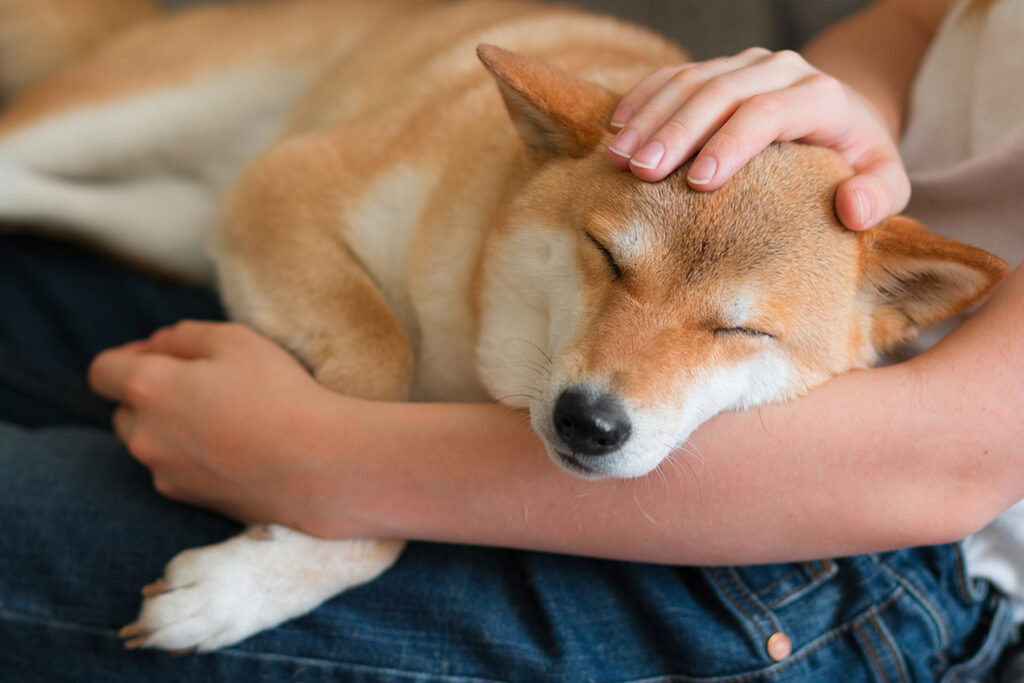Most of the health supplements used by humans, cannot be given to dogs. Yet, there are a few exceptions that dogs can take, and that includes melatonin. Are they safe? Yes, they are as long as they’re administered in recommended dosages by the vet.
Aside from aiding in falling asleep, melatonin has more benefits for your dogs. Read on further to learn more about melatonin and its benefits for your dog.
Melatonin for Dogs: Uses, Dosage, Side Effects, and Safety
What is Melatonin?
Melatonin is a natural hormone produced through the pineal gland. It’s found in the pineal glands in both dogs and humans which regulate the sleep-wake cycle of bodies. This hormone is usually produced in the darkness, so its levels are usually higher at night. Taking this supplement can help with insomnia, relieve anxiety, and calm down the body.
According to American Kennel Club, there has been much evidence of the effectiveness of melatonin when given to dogs. It has been shown to be helpful in treating separation anxiety, stress from their surroundings especially around loud noises, and some even for hair loss or canine alopecia.
Can Dogs Have Melatonin Supplements?
Melatonin is generally safe for most dogs. Yes, dogs can have melatonin supplements, but as long as it is recommended by your veterinarian. It is usually recommended by vets to help with anxiety, behavioral concerns, unusual sleeping patterns, and skin conditions. Plus, consulting with your veterinarian will help to decide if melatonin can be safely given to your dog since there can be adverse effects or reactions (especially for puppies or expecting dogs).
Melatonin for dogs is made and sold through pet stores or veterinarian clinics. Make sure to visit your veterinarian before purchasing melatonin supplements for your dog.
Melatonin Side Effects on Dogs

There haven’t been enough studies on the side effects of melatonin for dogs, but it is generally safe for dogs to take, as long as veterinarians recommend and approve of it. Once your dog takes melatonin, you will immediately notice your dog’s sleepiness. Melatonin for dogs is known for its calming effects, making it a great treatment for dogs who have anxiety, stress, phobias, and separation anxiety. Dogs can also suffer from sleep-related issues that cause sleep disturbances like narcolepsy, or it may be related to a symptom of a health problem. Dogs who have dementia or Canine Cognitive Dysfunction are also likely to suffer from sleep issues, and giving melatonin for dogs helps them sleep better at night.
It is also a great remedy for those who are unusually restless, hyperactive, or with epilepsy. There is also evidence of the supplement and its positive effects in treating alopecia or hair loss. Past research also shows that melatonin is administered to dogs prior to giving them anaesthesia to help with calmness.
These are also rare side effects of melatonin for dogs that may occur:
- Affecting the dog’s fertility
- Confusion
- Gastric issues and upset stomach
- Elevated heart rate
- Itching
Make sure to carefully read the labels of the melatonin you buy and avoid potentially toxic ingredients such as xylitol for your dogs. If your dog is currently taking other medications, be sure to consult with your veterinarian if it is safe to simultaneously administer the dosage or for recommendations on when to give the medication or supplement to your dog.
Melatonin Dosage for Dogs

Although melatonin can be purchased anywhere where it’s available, you must consult with your veterinarian to determine the right amount of melatonin dosage for your dog. They approve of melatonin for your dog, depending on their condition. Similar to other medications, the amount of appropriate melatonin dosage for your dog corresponds to their weight. The normal amount of melatonin dosage ranges from 1 to 6 mg, usually 1 mg per 20 pounds, and is given orally every 8 – 24 hours. Generally, it should not be given more than 3 times per day.
The amount of melatonin dosage for dogs varies depending on the condition. For example, lower dosages are given for sleep-related concerns and are given less frequently. Melatonin for dogs also comes in different forms like pills, tablets, capsules, treats, or liquids. They can be given with or without food and the effects can kick in after 15-20 minutes (for some it can be 1-2 hours). The melatonin for dogs effects lasts about 8 hours.
Do not double up on doses if you miss a dose within the day, and proceed with giving them the recommended dose in the next hour. Although there is little evidence that dogs can overdose on melatonin, there is an unlikely possibility it causes severe health problems. Mild overdoses may result in vomiting, stomach issues, and heavy sleepiness. On the other hand, possible major overdoses may result in high blood pressure, raised heart rate, uneasiness, itchiness, and even seizures. This is why it’s important to strictly follow the advised dosage per your veterinarian.
It is not recommended for puppies 12 weeks old or pregnant dogs.
Conclusion
Melatonin for dogs is generally safe to take. Pet owners should always seek advice from their veterinarian if melatonin should be administered and for the recommended dosage to give to their dogs. Melatonin can help your dog with sleep issues, anxiety, phobias, behaviour, and even with hair loss problems. They can be given up to 3 times daily and comes in different forms.
Melatonin for dogs has rare side effects that are not life-threatening (unless given in excess), but be sure to bring your dog to the vet for any adverse reactions or effects.


